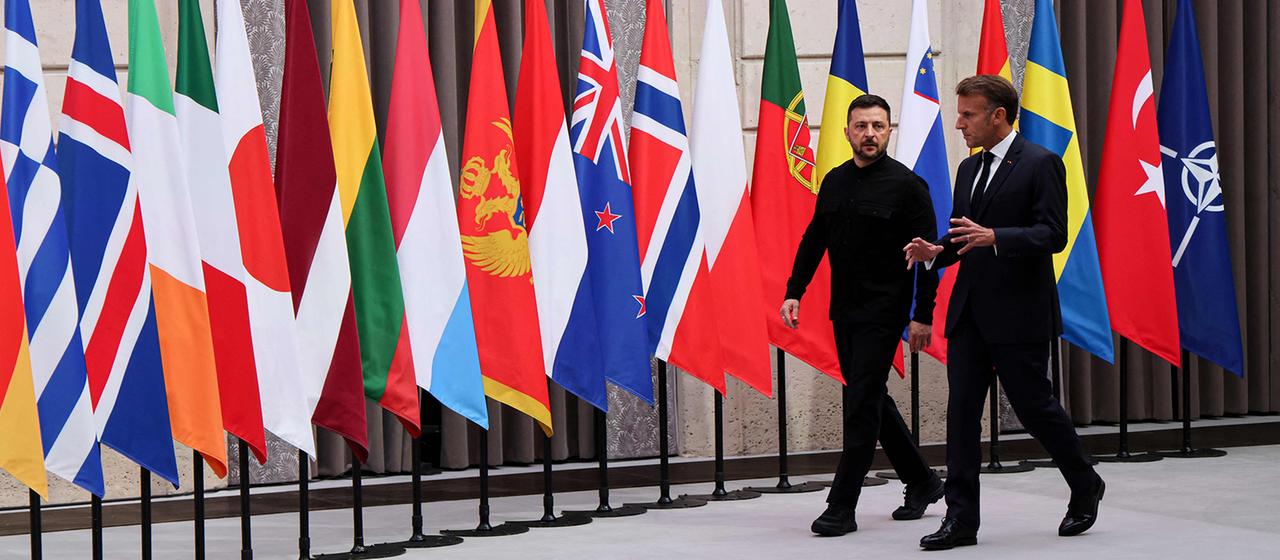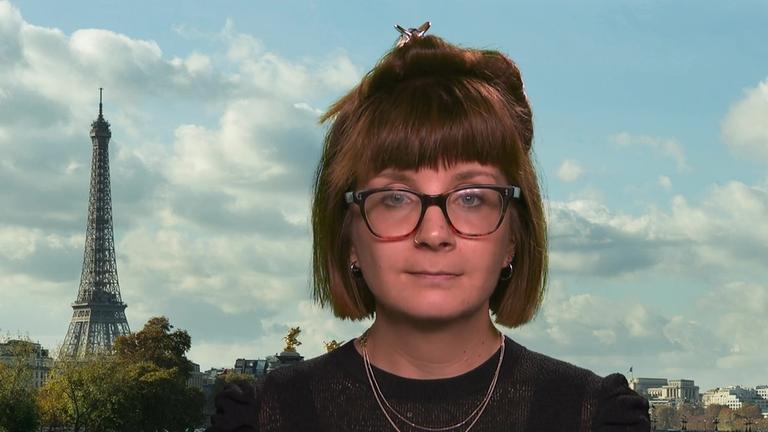
Ukraine's Western backers have agreed on security guarantees for the country. According to French President Macron, 26 countries would send troops. However, many details are still unclear.
Ukraine's Western backers agreed on a broad framework of military security guarantees for the Russian-attacked country at a meeting in Paris. Chaired by French President Emmanuel Macron and British Prime Minister Keir Starmer, 35 heads of state and government, some in person and some via video link, discussed how Ukraine's security could be ensured after a possible end to the war.

According to Ukrainian President Volodymyr Zelensky, who also participated, there is agreement within the"Coalition of the Willing" on the general framework of security guarantees. A strong Ukrainian army is of central importance, he said after the group's meeting in Paris. Furthermore, everyone agreed that Russia rejects any peace initiative.
Macron: 26 countries want to send troops
According to Macron, 26 countries are ready to deploy troops to secure a ceasefire or peace in Ukraine. These countries have formally committed to stationing troops in Ukraine as support or to maintaining a presence on land, at sea, or in the air to strengthen Ukraine after the end of the war and secure peace, Macron said after the consultations. He did not name the countries.
Other states are still considering whether to participate in the security guarantees, Macron said."This force has neither the will nor the objective of waging war against Russia, but rather is intended to secure peace and send a clear strategic signal."
Macron: Concept for security guarantees is in place
On the eve of the meeting, Macron had already announced that the supporting countries had completed their preparations for security guarantees.
Thanks to the preparatory work of the military chiefs since the Ukraine summit in the White House, the Europeans are now ready to provide security guarantees to Ukraine as soon as a peace agreement is signed. The concept developed by the coalition's military chiefs now needs political approval. Macron did not provide further details of the concept.
According to military sources, a troop presence of European NATO states in Ukraine could primarily be a large-scale training mission. Accordingly, it is not a peacekeeping force in the traditional sense.
Commitments from Washington are slow to arrive
The European NATO members would bear the brunt of any deployment. The Europeans have repeatedly made it clear that it will not proceed without reassurance from the United States. US Special Envoy Steve Witkoff also attended the meeting. Following the Paris consultations, US President Donald Trump was to be briefed by phone. Concrete commitments from Washington have so far been pending.
France and Great Britain had previously agreed to send several thousand troops. Denmark, Estonia, and Lithuania had also pledged to do so. Sweden expressed its willingness to secure a possible peace in Ukraine through air surveillance and from the sea. The Netherlands stated that it could provide assistance by air, sea, and land.
No German plans for military action
For Germany, equipping the Ukrainian armed forces is the first priority so the country can defend itself. The government will decide on everything else only after a ceasefire. However, it rejects the deployment of Bundeswehr soldiers, at least not at this point, according to Berlin. According to media reports, however, the German government plans to strengthen Ukraine's air defenses, support the country in building weapons systems, and provide further assistance in training Ukrainian soldiers. All of this is subject to the condition that the US continues its involvement in Ukraine.
Chancellor Friedrich Merz participated in the Paris meeting only via video link. According to government spokesman Stefan Kornelius, he threatened Russia with further punitive measures if there was no progress in the ceasefire negotiations."If the Russian side continues to play for time, Europe will increase the pressure of sanctions to increase the chances of a diplomatic solution," Kornelius said.
Many EU countries are holding back
Other EU countries also expressed reservations. The Czech Republic considers the discussion about deploying soldiers premature, and Lithuania expressed reservations. Spain and Portugal indicated months ago that they might participate in a peacekeeping mission.
Greece, Slovakia, Italy, Cyprus, Poland, Austria, Romania, Slovenia, Croatia, and Hungary do not want to send troops to Ukraine. However, many of these countries have expressed their willingness to support securing future peace in Ukraine through other means, such as logistical assistance.
Putin sticks to old demands
Whether a peace settlement will even be reached remains open, however. At a press conference in China on Wednesday, Russian President Vladimir Putin called on Zelensky to come to Moscow if he wanted to talk with him. Russia is prepared to continue the war if an agreement acceptable to Moscow is not reached, he said. Ukrainian Foreign Minister Andriy Sybiha rejected the invitation for Zelensky to come to Moscow as"unacceptable."
Russia, in turn, rejects Western considerations for security guarantees, including the deployment of troops from NATO countries to Ukraine, according to the Foreign Ministry."Russia will not discuss a deeply unacceptable and security-undermining foreign intervention in Ukraine," said ministry spokeswoman Maria Zakharova.
NATO chief for troop presence after ceasefire
NATO Secretary General Mark Rutte defended ongoing plans for European troops in Ukraine following a possible ceasefire with Russia.
The Dutchman made it clear that, in his view, it doesn't matter that Moscow opposes such a troop presence."Why should we care about what Russia thinks about troops in Ukraine?" he asked rhetorically at an event in Prague. Ukraine is a sovereign country, he said. And it is not up to Russia to decide on a troop presence.

